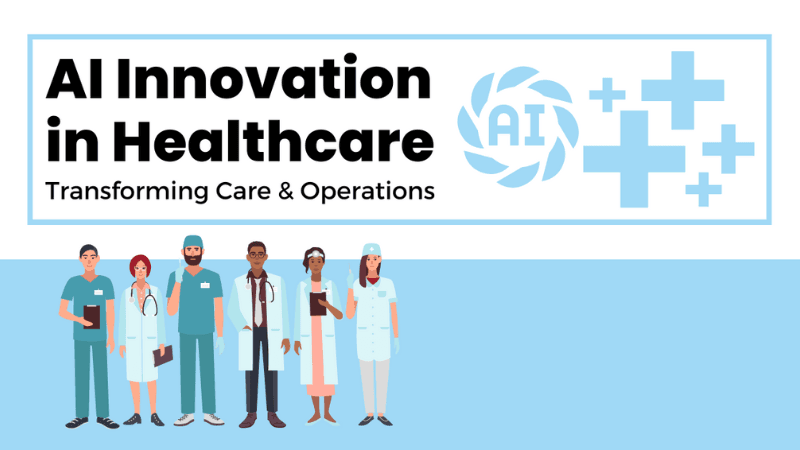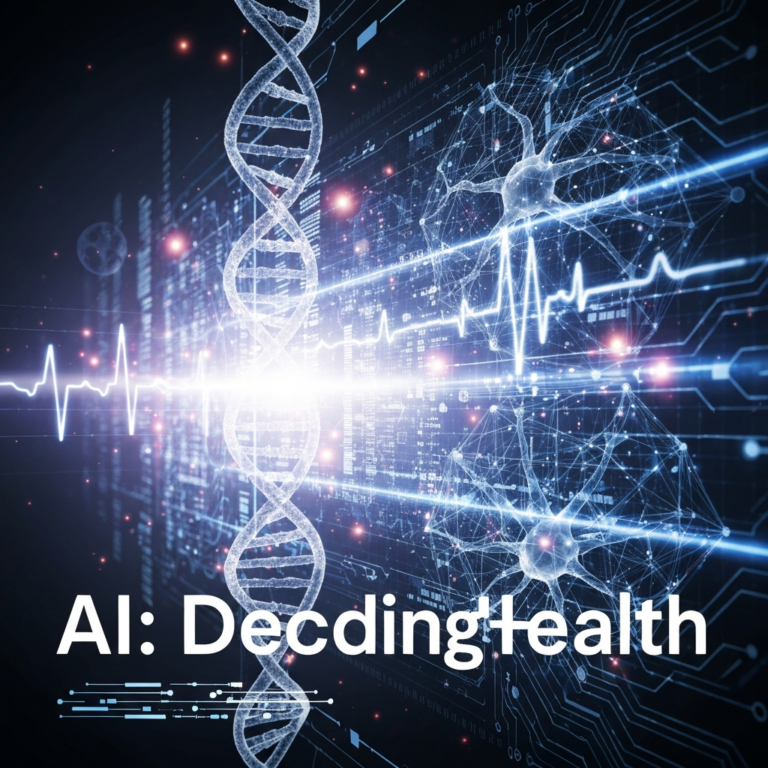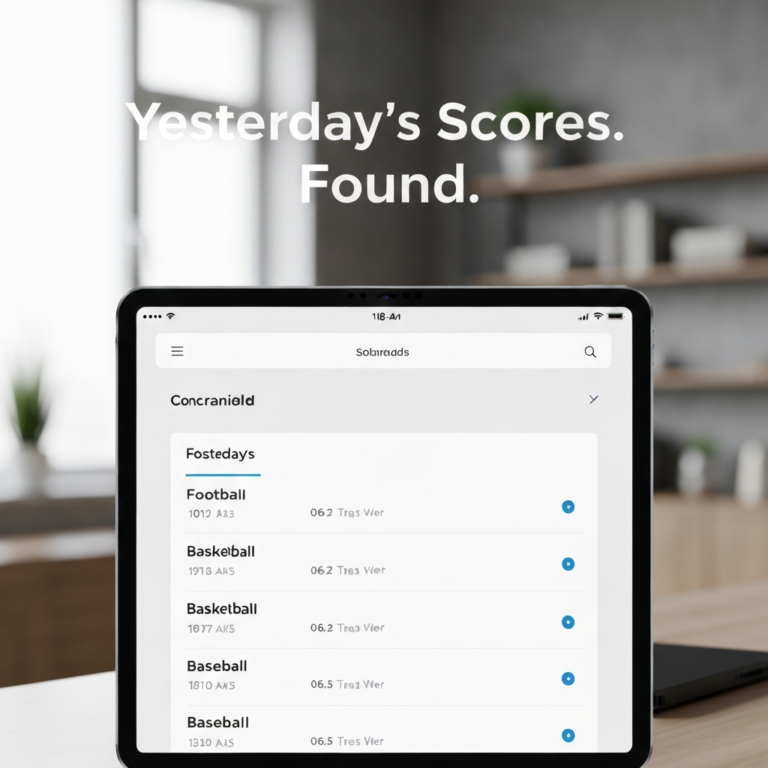
The healthcare industry is undergoing a seismic shift with the introduction of artificial intelligence (AI) and data-driven analytics. These technologies are more than just buzzwords; they hold the potential to transform the way healthcare facilities operate, how doctors diagnose diseases, and how patients receive care. As the complexity of healthcare grows, AI-driven solutions could become the backbone of a more efficient, personalized, and accessible healthcare system.
Table of contents
- Quick Take: How AI is Revolutionizing Healthcare – Key Insights at a Glance
- Unlocking the Power of Data for Healthcare
- Personalized Care Through AI
- AI-Powered Diagnostics: Speed and Precision
- Streamlining Operations and Improving Efficiency
- Addressing Privacy and Ethical Concerns
- The Future of AI in Healthcare
Quick Take: How AI is Revolutionizing Healthcare – Key Insights at a Glance
- Unlocking the Power of Data:
- AI can analyze large volumes of healthcare data.
- Helps identify patterns, predict outcomes, and provide actionable insights.
- Challenges include algorithmic bias and the need for human oversight.
- Personalized Care:
- AI tailors treatment plans based on patient history and genetics.
- Cancer treatments can be more targeted with AI insights.
- The human element in healthcare is still critical despite AI’s role.
- AI-Powered Diagnostics:
- AI improves diagnostic accuracy, especially in radiology.
- Early detection of diseases like Alzheimer’s and cancer becomes more possible.
- Concerns over bias in diagnostic AI systems need to be addressed.
- Streamlining Operations:
- AI helps forecast patient admissions and optimize resource allocation.
- Automates tasks like scheduling and billing, improving efficiency.
- May reduce administrative job roles but creates tech-driven opportunities.
- Privacy and Ethical Concerns:
- Patient data security is a top concern with AI.
- Ethical questions about AI’s role in treatment decisions need resolution.
- The Future of AI in Healthcare:
- AI will enhance personalized care, diagnostics, and hospital operations.
- Ethical and privacy challenges must be managed for successful AI integration.
Unlocking the Power of Data for Healthcare
Data is the lifeblood of modern healthcare. Hospitals, clinics, and healthcare facilities generate massive amounts of data daily—patient records, treatment outcomes, diagnostic tests, and medical imaging. However, much of this data remains underutilized due to its sheer volume and complexity. AI-driven analytics can unlock the value of this data by identifying patterns, predicting outcomes, and providing actionable insights.
One of the key benefits of AI is its ability to sift through vast amounts of information and extract relevant insights that might be missed by human eyes. By leveraging AI tools, healthcare providers can predict patient outcomes, personalize treatments, and even identify disease outbreaks before they become widespread. In the future, data-driven analytics will help prevent chronic illnesses by analyzing lifestyle data, genetic information, and environmental factors, creating a more proactive and preventative healthcare system.
However, there are challenges. While AI can analyze data quickly and with high accuracy, human oversight is critical. Misinterpretation of data due to algorithmic biases or technical limitations can have serious consequences. A balance between AI and human expertise is necessary to ensure the right decisions are made, particularly in life-and-death scenarios.
Personalized Care Through AI
Personalized medicine has long been the goal of healthcare innovation. With AI-driven data analytics, this vision is becoming a reality. By analyzing a patient’s medical history, genetic makeup, and lifestyle factors, AI can create tailored treatment plans that are more effective than traditional, one-size-fits-all approaches.
For instance, cancer treatment could be transformed by AI. By understanding how a particular tumor’s genetic mutations affect a patient’s response to treatment, doctors can make better, more personalized decisions. AI systems can help predict how patients will react to various treatment options, allowing for more targeted and effective interventions.
However, critics argue that over-reliance on AI to drive these decisions could alienate the human aspect of healthcare. While AI can optimize treatment paths, it cannot replace the empathy and trust-building that comes with the patient-doctor relationship. The challenge lies in integrating AI seamlessly into healthcare systems without losing sight of the human touch that remains at the heart of patient care.
AI-Powered Diagnostics: Speed and Precision
Medical diagnostics is an area where AI has already made substantial inroads. AI-powered algorithms can process medical images, detect anomalies, and even diagnose diseases faster and with greater accuracy than traditional methods. This is especially true in fields like radiology, where AI can quickly scan hundreds of images to detect potential issues, like tumors or fractures.
Beyond imaging, AI can analyze laboratory results, genomic data, and even patterns in patient symptoms to offer more precise diagnoses. This has significant potential in diagnosing diseases that are difficult to detect in their early stages, such as Alzheimer’s or certain types of cancer. AI-powered diagnostics will allow healthcare providers to intervene earlier, improving the odds of successful treatment.
However, the reliance on AI for diagnostics also raises concerns. AI systems are trained on historical data, and if that data contains biases—such as those related to race, gender, or socioeconomic status—there’s a risk of reinforcing inequalities in healthcare. Rigorous testing and regulation are needed to ensure AI-based diagnostic tools are fair and reliable.
Streamlining Operations and Improving Efficiency
AI can also revolutionize healthcare operations, reducing inefficiencies, and streamlining processes. Predictive analytics can forecast patient admissions, allowing hospitals to allocate staff and resources more effectively. By automating administrative tasks, like patient scheduling and billing, healthcare facilities can reduce wait times and improve the overall patient experience.
For example, AI can predict when certain departments will experience high patient volumes and adjust staffing levels accordingly. This is especially useful in emergency departments where patient flows can fluctuate unpredictably. AI-driven systems can also monitor inventory and ensure that medical supplies are available when needed, helping hospitals avoid costly shortages or overstocking.
Moreover, AI’s ability to automate repetitive tasks—such as entering patient data into electronic health records (EHRs)—can alleviate some of the burdens on healthcare professionals, allowing them to focus on patient care. But with automation comes a concern about job displacement. While AI will create new opportunities in healthcare, it could also reduce the need for certain administrative roles. The key will be ensuring that workers are retrained and reskilled for the new, tech-driven healthcare landscape.
Addressing Privacy and Ethical Concerns
As healthcare becomes more reliant on AI and data, privacy and ethical concerns loom large. Patient data is sensitive, and the risks of breaches or misuse are significant. AI systems must be designed with robust security measures to protect patient information and comply with healthcare regulations like HIPAA.
Ethically, there are questions about the use of AI in healthcare decision-making. Should AI be used to determine which patients receive certain treatments? How do we ensure that AI systems make decisions fairly, without bias? These are complex questions that will need to be addressed as AI continues to play a larger role in healthcare.
The Future of AI in Healthcare
AI-driven data and analytics hold enormous promise for the future of healthcare. As the technology matures, it will unlock new possibilities for personalized medicine, faster diagnostics, and more efficient hospital operations. However, the road ahead requires careful consideration of ethical challenges, data privacy, and the need to maintain a balance between human expertise and machine learning.
Ultimately, the success of AI in healthcare will depend on how well it is integrated into the broader system. It cannot operate in isolation but must work hand-in-hand with healthcare providers to enhance, rather than replace, the human aspects of care. If implemented responsibly, AI has the potential to revolutionize healthcare, making it more efficient, accessible, and patient-centered.





